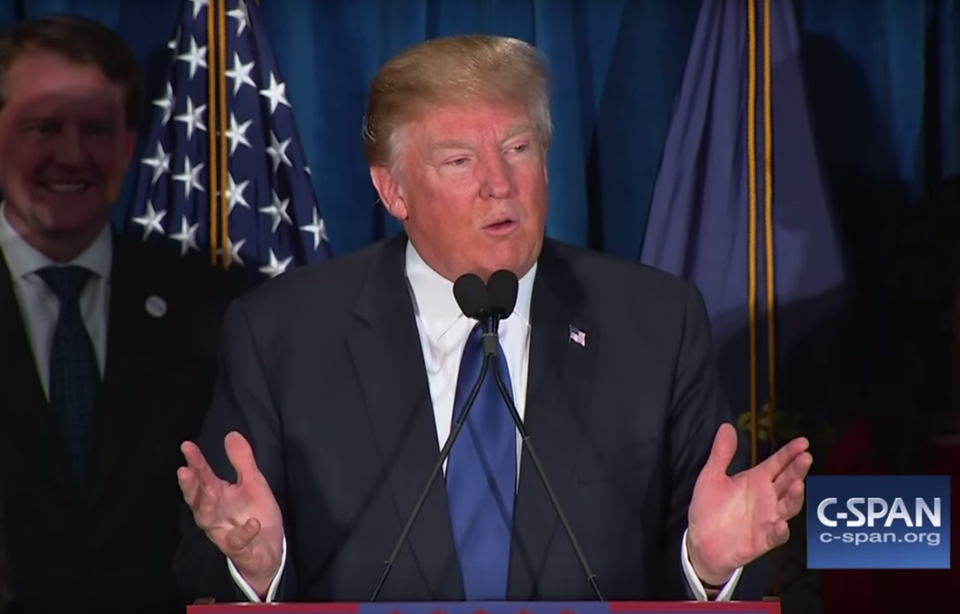Privacy, cybersecurity get little play in presidential debates

If you’re looking for today’s top U.S. presidential candidates to debate privacy and cybersecurity issues beyond government surveillance, don’t blink. Beyond skirmishes over surveillance legislation, the topics have taken a backseat to immigration, jobs, and terrorism, and health care, not to mention personalities.
During Republican debates in recent months, Sen. Marco Rubio of Florida, who has called on Congress to “consider a permanent extension” of the intelligence community’s counterterrorism spying authorities under the Foreign Intelligence Surveillance Act, has sparred with Sens. Ted Cruz of Texas and Rand Paul of Kentucky over their support of the USA Freedom Act.
Rubio slammed the new law, which reins in the National Security Agency’s domestic phone records collection program, saying it limits the federal government’s ability to fight terrorist groups such as the Islamic State of Iraq and the Levant, or ISIL. “We are now at a time when we need more tools,” not fewer, he said, and the bulk phone records collection program “was a valuable tool that we no longer have at our disposal.”
“There is no equivalent of ‘build a wall’ for privacy.” — Daniel Castro, vice president of the Information Technology and Innovation Foundation
In a December presidential debate, Cruz defended his vote for the bill, saying that instead of collecting U.S. records in bulk, it targeted “the bad guys” by expanding data collection from landlines to mobile phones and Internet telephony, or VoIP.
Many tech policy experts don’t see privacy and cybersecurity issues getting much more attention in the presidential race.
Tech issues get major attention in presidential politics only when there are “simple, populist messages,” like in the Net neutrality debate of recent years, said Daniel Castro, vice president of the Information Technology and Innovation Foundation, a tech-focused think tank. For complex issues surrounding cybersecurity and online privacy, “voters may not have a clear solution in mind,” Castro said. “There is no equivalent of ‘build a wall’ for privacy.”
Generally, cybersecurity and other tech issues don’t rise to become top-priority issues for many voters, Castro added. “Voters will almost always prioritize jobs and national security over more esoteric topics like data regulation and surveillance law.”
Castro is increasingly skeptical that the United States will suffer a massive cyberattack that “will change hearts and minds about our response to cybersecurity,” he added. “Instead, we will have a continuous state of aggression that people get used to and results in little policy action.”
Some advocates are more optimistic that privacy and government surveillance issues will make a splash in the debates.
“Poll after poll shows that Americans are concerned about government intrusion into their privacy,” said Neema Singh Guliani, legislative counsel at the American Civil Liberties Union. “Candidates who fail to recognize this risk losing the support of voters…who increasingly demand reforms to ensure that their private information remains truly private.”
Presidential debates skirt tech issues
Yet most of the major Democratic and Republican candidates have only touched on tech issues, including privacy and cybersecurity. Businessman Donald Trump and retired neurosurgeon Ben Carson, both Republicans, have talked about censoring the Internet as a way to fight terrorism. And only a handful of top-tier candidates address cybersecurity issues on their campaign websites, with most candidates offering little detail. None of the major candidates’ websites focus on privacy or surveillance issues.
The campaign site for former Secretary of State Hillary Clinton, a Democrat, touches briefly on cybersecurity. Clinton has also addressed cybersecurity in live events, telling attendees that the government needs to work more closely with private industry to combat cyberthreats.
“Cyberattacks have profound consequences for our economy and our national security,” the national-security section of Clinton’s site says. “Our country will outpace this rapidly changing threat, maintain strong protections against unwarranted government or corporate surveillance, and ensure American companies are the most competitive in the world.”
Rubio’s site calls on the U.S. government to “encourage information sharing between the federal government and the private sector,” and to use its power to “respond harshly to international cyberattacks on American citizens, businesses, and governments.”
Former Ohio Gov. John Kasich briefly mentions cybersecurity on his site.
Carson released an eight-page cybersecurity position paper in January. He called for the U.S. government to consolidate its cybersecurity efforts under a new agency.
And former Florida Gov. Jeb Bush released his own cybersecurity plan late last year. He called on the U.S. government to increase its intelligence and law enforcement cybersecurity capabilities.
